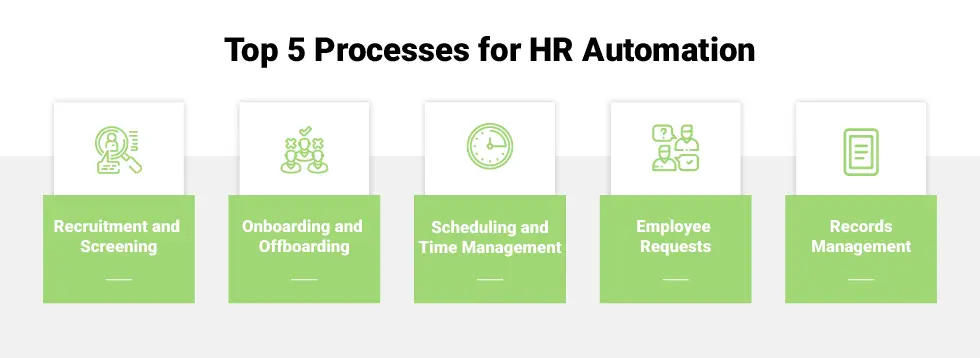The jewellery industry is a vibrant and dynamic field, offering unique opportunities for those looking to pursue a career in human resources. As we look towards 2025, the landscape of HR roles within this industry is evolving, driven by technological advancements, changing consumer preferences, and a growing focus on sustainability and ethical sourcing. Here’s a comprehensive guide on how to navigate the path to finding HR jobs in the jewellery industry.
Understanding the Jewellery Industry Landscape
Before diving into how to get an HR job in this field, it’s essential to understand the current trends and challenges shaping the industry:
- Sustainability and Ethics: Consumers are increasingly demanding transparency regarding where their jewellery comes from. Companies are focusing on sustainable practices, which influences HR policies and recruitment strategies.
- Technology Integration: From blockchain for tracking gemstones to AI-driven customer service, technology is transforming how jewellery businesses operate. HR professionals need to be tech-savvy to manage these changes.
- Global Market Dynamics: With a global supply chain, HR roles often require managing diverse teams across various geographies.
- Personalization and Customization: There’s a growing trend towards personalized jewellery, impacting production processes and the skills required from employees.
Skills Required for HR Jobs in the Jewellery Industry
To succeed in an HR role in this industry, you’ll need a blend of traditional HR skills and industry-specific knowledge:
- Knowledge of Industry Trends: Stay informed about trends in jewellery design, materials, and consumer preferences.
- Strong Communication Skills: You will need to effectively communicate with diverse teams and stakeholders.
- Tech-Savviness: Familiarity with HR software, HR technology and an understanding of how technology is used in the jewellery industry.
- Cultural Sensitivity: Given the global nature of the industry, being able to navigate cultural differences is crucial.
- Ethical Leadership: A commitment to promoting ethical practices within the company.
Education and Qualifications
- Relevant Degrees: A degree in human resources, business administration, or a related field is typically required. Specialized courses in jewellery management or fashion can be advantageous.
- Certifications: Consider certifications such as SHRM or CIPD for HR professionals, which can enhance your credentials.
- Workshops and Seminars: Attend industry-specific workshops to learn about the latest developments in the jewellery sector.
Gaining Experience
- Internships: Look for internships or entry-level positions within jewellery companies to gain firsthand experience.
- Networking: Attend industry events and join professional associations related to jewellery and HR to build connections.
- Cross-Industry Experience: Experience in related fields like fashion or luxury goods can also be valuable.
The Job Search Process
- Tailored Resume: Customize your resume to highlight relevant experience and skills specific to the jewellery industry.
- Online Presence: Maintain a professional LinkedIn profile that showcases your expertise in HR and interest in the jewellery sector.
- Job Portals and Company Websites: Regularly check job portals and the career sections of jewellery companies for openings.
- Recruitment Agencies: Consider using agencies that specialize in recruiting for the luxury or fashion industries.
Interview Preparation
- Research the Company: Understand the company’s products, culture, and values. Be prepared to discuss how you can contribute to their goals.
- Industry Knowledge: Be ready to discuss current trends and challenges in the jewellery industry.
- Scenario-Based Questions: Prepare for questions that test your problem-solving skills and ability to handle HR-specific challenges. Have mock up interviews with Friends and peers about list of questions for HR Interviews that could be asked.
Career Advancement
- Continual Learning: Stay updated with industry trends through courses and seminars. Learn the AI Tools in HR that are getting in use rapidly across HR teams.
- Professional Development: Seek opportunities for advancement within the company by taking on additional responsibilities or leading projects.
- Mentorship: Find mentors within the industry who can provide guidance and support as you advance your career.
Salary Growth in the Jewellery Industry
Human Resources (HR) professionals in the jewelry industry play a crucial role in managing talent, shaping company culture, and ensuring compliance with labor regulations. Their salaries can vary significantly based on factors such as location, experience, and the size of the company.
In major markets like New York or Los Angeles, HR managers in the jewelry sector can expect higher salaries due to the cost of living and demand for skilled professionals. Typically, salaries for HR managers in these areas range from $70,000 to $120,000 annually. In smaller markets or companies, the range might be between $50,000 and $90,000.
Experience significantly influences salary. Entry-level HR positions may start at around $40,000 to $50,000 per year. However, with 5-10 years of experience, professionals can see their compensation increase substantially. Senior HR roles or specialized positions, such as HR directors or talent acquisition specialists, can command salaries upwards of $100,000.
In India
Entry-level HR jobs in the jewellery industry may start with an annual salary ranging from ₹3 to ₹5 lakhs. As professionals gain experience and move into mid-level roles, salaries typically increase to between ₹6 and ₹10 lakhs per annum.
Senior HR professionals or managers in larger, well-established jewellery companies can earn upwards of ₹12 to ₹20 lakhs annually. These positions often require a deep understanding of both human resources management and the unique challenges of the jewellery sector, such as compliance with industry-specific regulations and managing skilled artisans.
Location plays a crucial role in salary variations. For instance, HR professionals based in metropolitan areas like Mumbai or Delhi may earn higher salaries due to the higher cost of living and the concentration of major jewellery brands in these cities.
Benefits such as bonuses, health insurance, and retirement plans can further enhance total compensation packages. The unique challenges and creative environment of the jewelry industry make it an attractive sector for HR professionals seeking dynamic and rewarding careers.
Challenges and Opportunities
- Adapting to Change: The rapid pace of change in technology and consumer preferences requires adaptability.
- Balancing Tradition and Innovation: The jewellery industry values tradition but also needs innovation, creating unique challenges for HR professionals.
- Talent Acquisition and Retention: Finding skilled artisans and tech-savvy professionals is a critical challenge that also provides opportunities for those who excel at recruitment.
HR Automation in the Jewellery Segment
Human Resources (HR) automation in the jewellery industry streamlines various processes, enhancing efficiency and reducing manual workload. Here’s a list of HR automation applications commonly adopted:
- Recruitment Software: Automated systems help in posting job listings, screening resumes, and scheduling interviews, ensuring faster and more efficient hiring.
- Onboarding Tools: Digital platforms facilitate smooth onboarding by providing new employees with necessary information and training modules, reducing paperwork.
- Payroll Systems: Automated payroll solutions handle salary calculations, deductions, and tax compliance, minimizing errors and ensuring timely payments.
- Attendance Management: Biometric systems and digital attendance tracking ensure accurate timekeeping, reducing discrepancies in work hours.
- Performance Management: Automated tools assist in setting goals, tracking performance metrics, and conducting evaluations, offering data-driven insights.
- Employee Self-Service Portals: These platforms allow employees to access personal information, apply for leave, and view payslips without HR intervention.
- Compliance Management: Automation ensures adherence to industry regulations and standards, reducing risks associated with non-compliance.
By leveraging HR automation, jewellery companies can focus more on strategic initiatives and employee engagement, ultimately enhancing productivity and growth.
Summary
In conclusion, finding HR jobs in the jewellery industry in 2025 offers a unique blend of challenges and opportunities. By equipping yourself with the right skills, gaining relevant experience, and staying informed about industry trends, you can position yourself as a valuable asset to jewellery companies looking to thrive in a competitive market. As you embark on this journey, remember that success lies in your ability to adapt and innovate while maintaining a strong commitment to ethical practices and cultural sensitivity.





